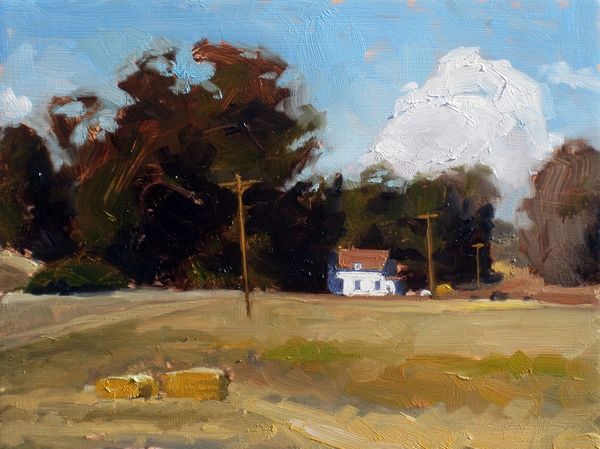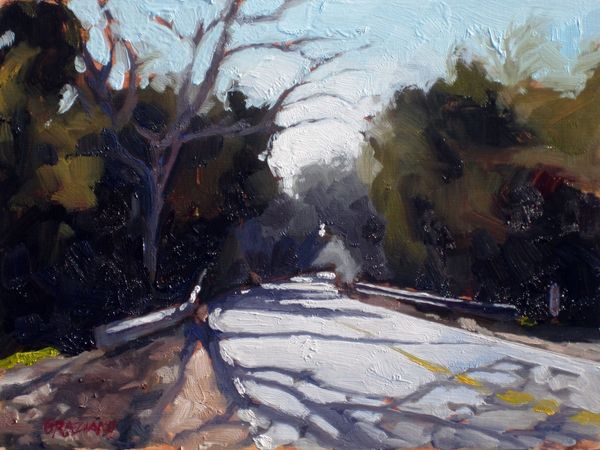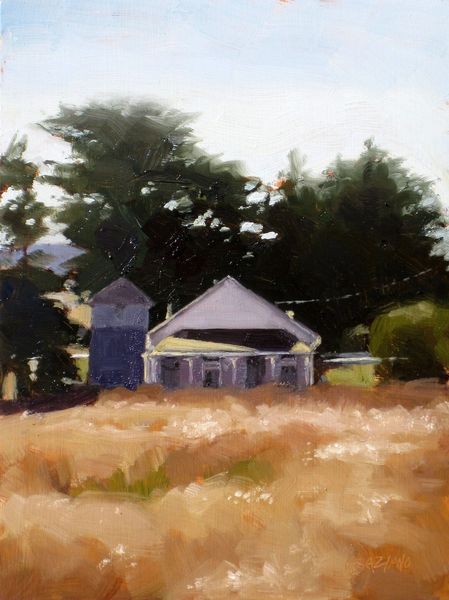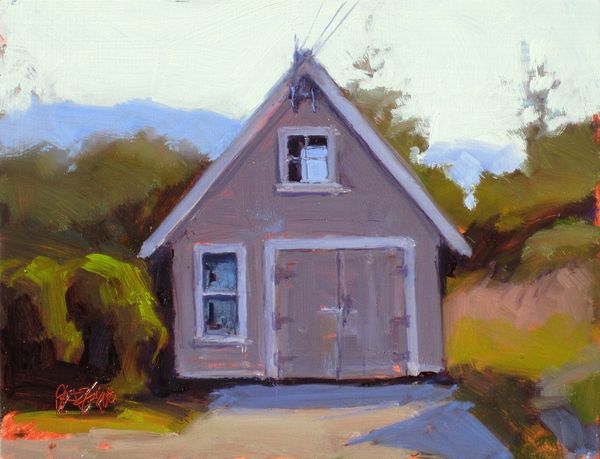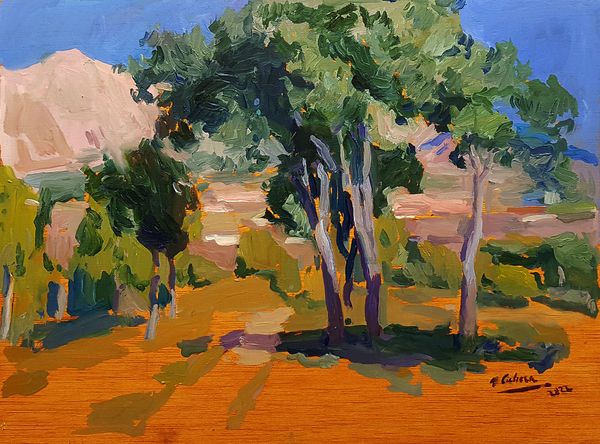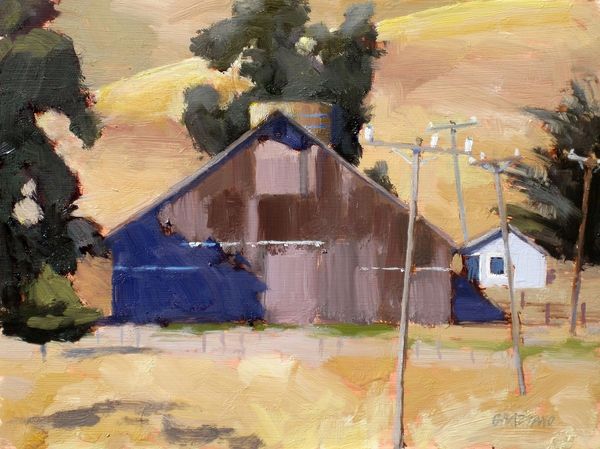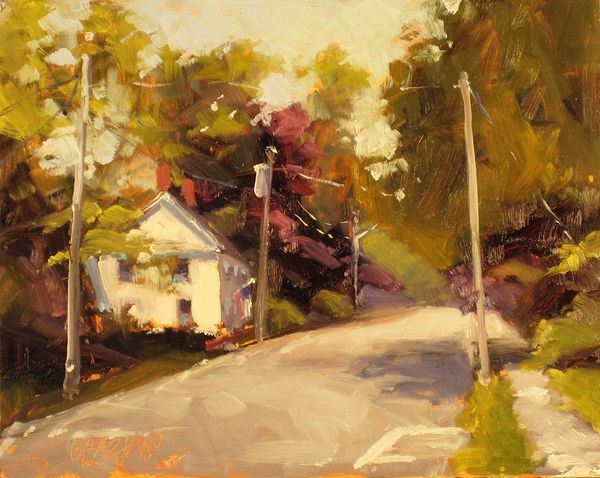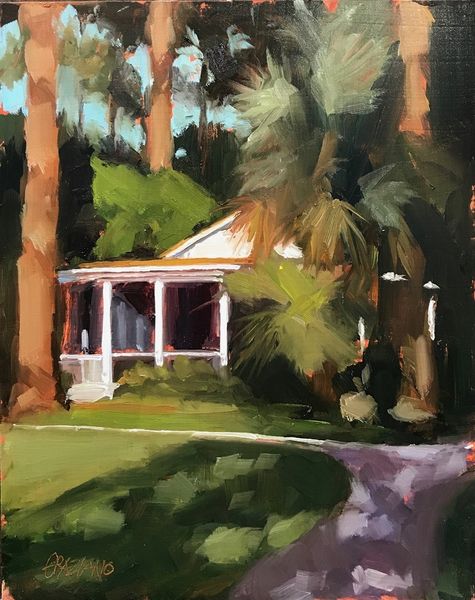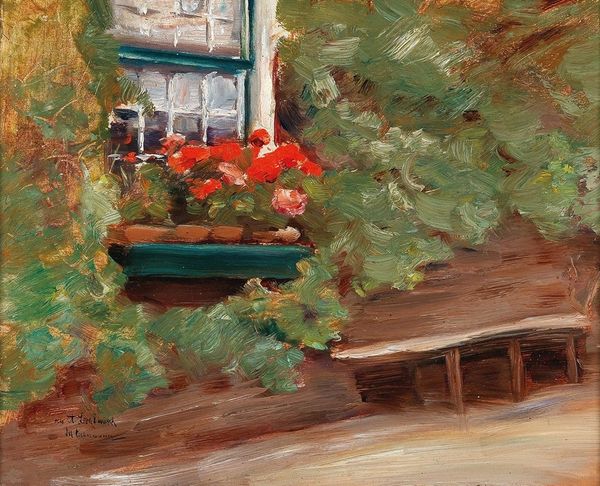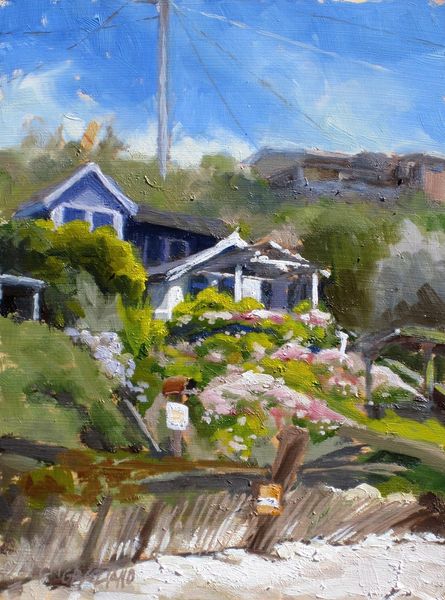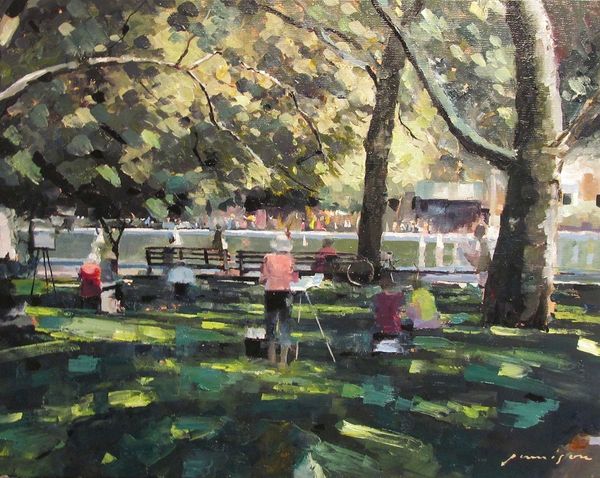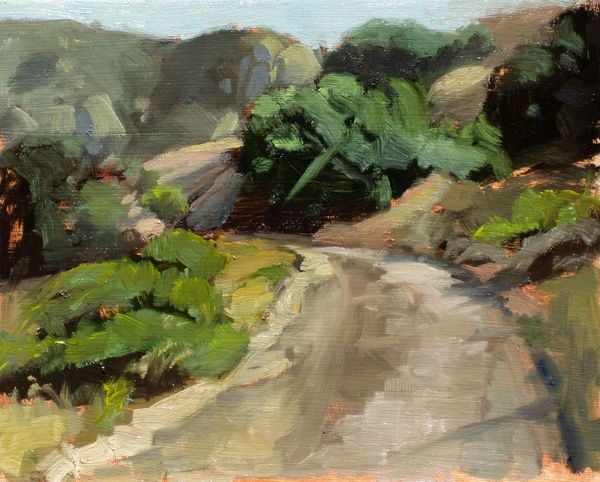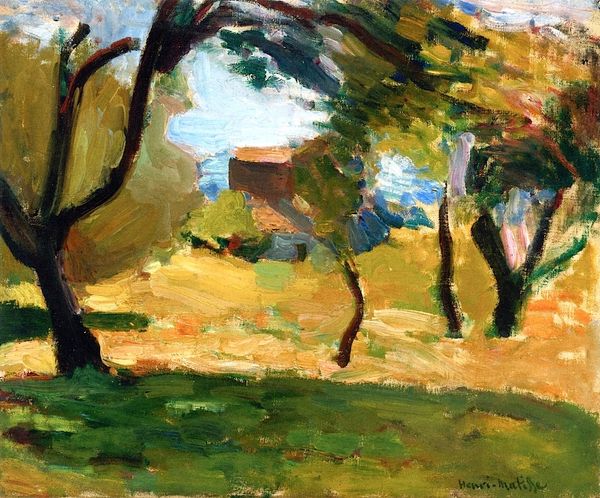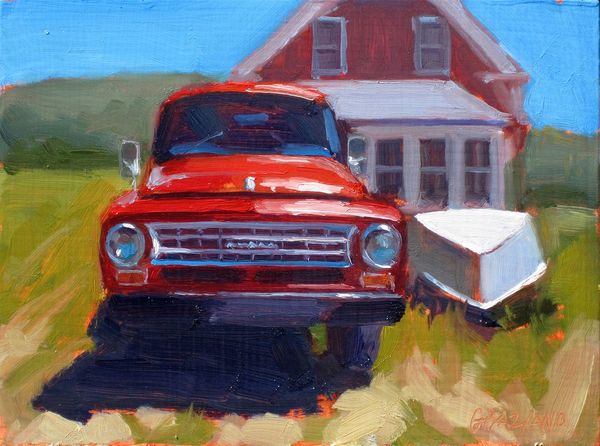
#
abstract painting
#
impressionist painting style
#
landscape
#
impressionist landscape
#
possibly oil pastel
#
oil painting
#
fluid art
#
neo expressionist
#
acrylic on canvas
#
painting painterly
#
expressionist
Copyright: Modern Artists: Artvee
Editor: We’re looking at "Tin Can" by Dan Graziano, a vibrant oil painting. It features an older mobile home, perhaps abandoned, surrounded by lush greenery. I’m struck by its sense of quiet decay and how nature reclaims spaces. What do you see in this piece? Curator: I see a powerful statement about the transient nature of the American Dream and the often-invisible populations that inhabit these spaces. Consider the social implications: mobile homes are frequently the only affordable housing for marginalized communities. Does this vibrant yet decaying image challenge our preconceived notions about those communities and their relationship to the environment? Editor: That’s a fascinating angle. I was initially focusing on the pure aesthetic—the brushstrokes, the light. But I see what you mean about affordable housing. Curator: Exactly. Graziano is subtly drawing attention to class and economic disparity, as well as issues around property rights and land use. The 'tin can', usually associated with disposability, is juxtaposed against the enduring power of nature. Who, or what, is ultimately disposable here? How do we read this within environmental justice frameworks? Editor: So, the painting isn't just a pretty landscape; it's making us think about deeper societal issues. It almost romanticizes poverty. Curator: "Romanticizes" is a strong word, but that tension is there. Art often holds contradictions. Does this aestheticization amplify the voices of those living in these spaces, or does it further marginalize them by presenting their reality as something 'picturesque'? Editor: I hadn't considered those points. This artwork has revealed so much more with this socio-political context. I need to think more about how artists address inequality. Curator: Precisely! Engaging with art means interrogating its role within larger systems of power and representation. Hopefully our listeners can see the possibilities and think through those tough questions along with us.
Comments
No comments
Be the first to comment and join the conversation on the ultimate creative platform.
